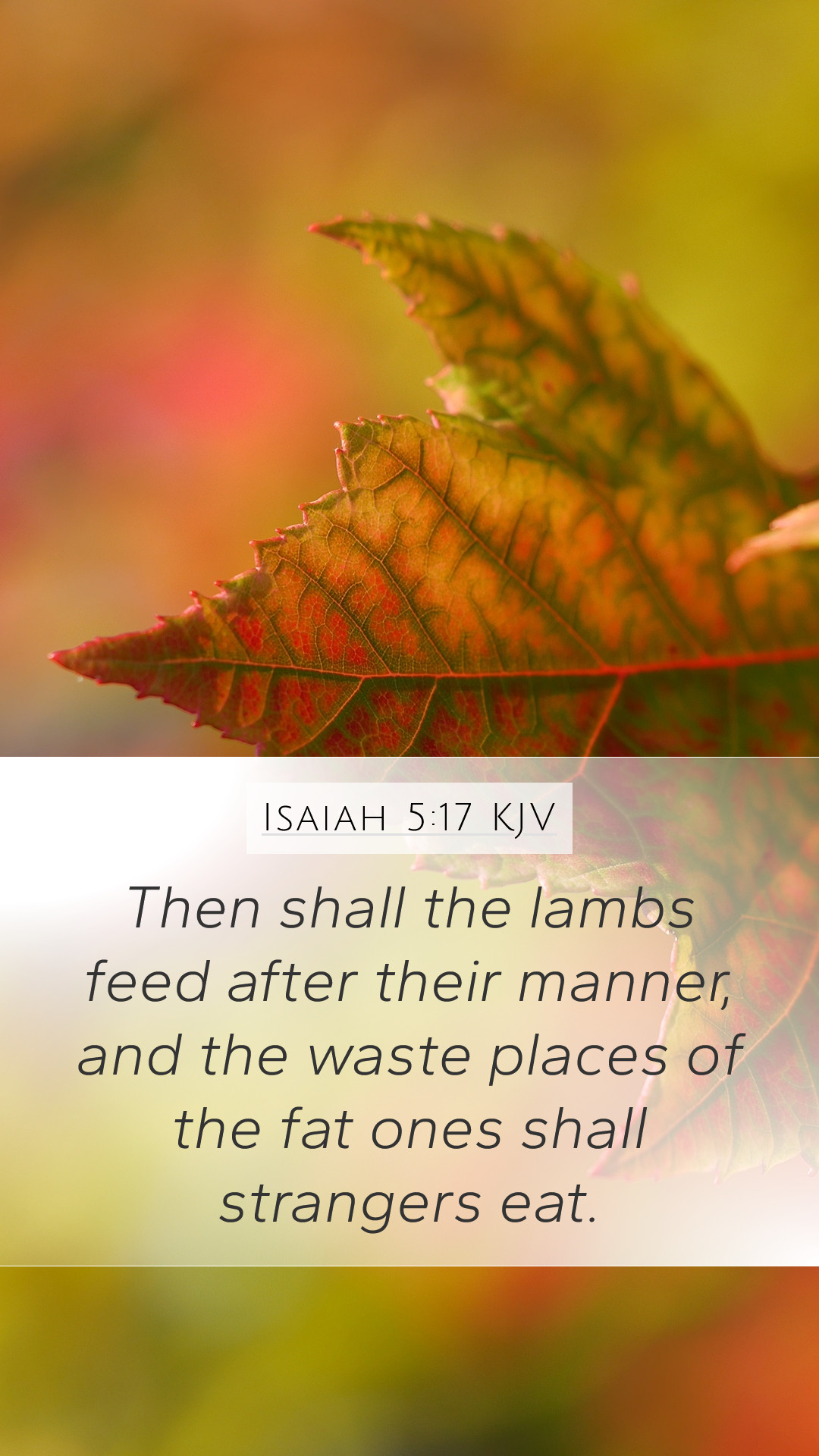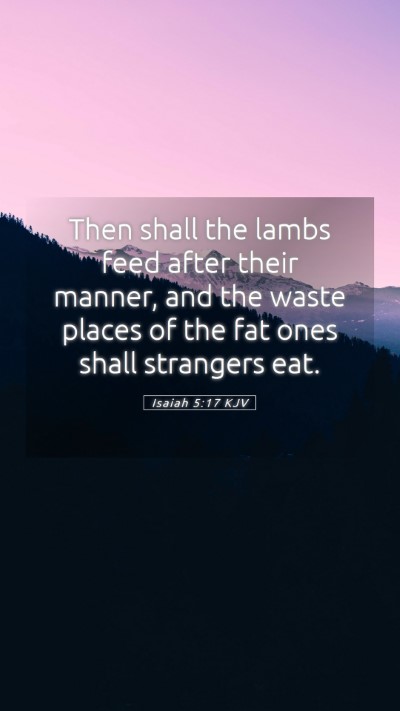Understanding Isaiah 5:17
Key Verse: Isaiah 5:17 - "Then shall the lambs feed after their manner, and the waste places of the fat ones shall strangers eat."
This verse is part of a larger context in Isaiah where God pronounces judgment on His people for their sins and great moral decay. The imagery of the lambs feeding signifies innocence and humility, contrasted against the backdrop of judgment.
Meaning and Explanation
Isaiah 5:17 serves as a poignant reminder of the consequences of national sin. Here's a more detailed breakdown of its interpretation using insights from various Biblical commentators:
- Matthew Henry: Henry highlights how the verse reflects the fate of the righteous and the humble amidst desolation. The imagery of the lambs signifies God's care for His people, who will still find sustenance even when judgment falls around them. The 'waste places' suggest that even the neglected situations could be occupied by those who do not share the covenant, illustrating God's sovereignty over provisions and His power to sustain His own.
- Albert Barnes: Barnes points out that this verse shows a shift in community dynamics as the faithful Israelites (the lambs) find themselves in perilous times where outsiders (strangers) occupy the land once flourishing with God's blessings. This can serve as a commentary on God's judgment leading to a state where His people are oppressed while others enjoy the fruits of their past labor.
- Adam Clarke: Clarke elaborates on the symbolism of the lambs and the strangers. He interprets the 'waste places' as a metaphor for spiritual condition, indicating how the land of promise becomes desolate. The 'strangers' symbolize those who should not reap where they have not sown, reflecting themes of divine justice and warning against national spiritual decay.
- Historical Context: It's essential to understand the historical backdrop of Isaiah, where Israel was facing imminent judgment due to their unfaithfulness, particularly in social justice and idolatry. The focus on lambs also connects to sacrificial imagery prevalent in the Hebrew Scriptures, symbolizing purity and sacrifice—a precursor to the New Testament revelations about Christ.
Application and Relevance
This verse encourages believers today to reflect on their spiritual state and the importance of humility and dependence on God amidst chaotic circumstances. Here are some practical takeaways:
- Trust in God: Just as the lambs are cared for, believers can take comfort that God provides for His people even in dire situations.
- Awareness of Judgment: The verse serves as a reminder to assess the spiritual health of one’s community and personal life, calling for repentance and restoration.
- Examine Relationships: Understanding who occupies the “waste places” can prompt Christians to actively engage in mission work ensuring that the gospel reaches those who are without, rather than allowing them to inherit spaces meant for God's people.
Related Bible Verses
- Psalm 23:1-2 - The Lord is my shepherd; I shall not want.
- Jeremiah 25:29 - For, behold, I begin to bring evil on the city which is called by My name.
- Ezekiel 34:11-16 - God as the shepherd of His people, seeking the lost.
Conclusion
Isaiah 5:17 serves as a critical point for teaching about the nature of God’s judgment and providence. By engaging with this scripture, it guides readers into a deeper understanding of Biblical exegesis, the significance of Biblical teachings, and the ongoing relevance of Scripture in today’s Christian walk.
This study insight into Isaiah 5:17 provides a substantial foundation for anyone looking for bible study resources, bible verse interpretations, and meaningful bible verse explanations.
In understanding difficult Bible passages, believers are encouraged to delve deeper into the word and seek community discussions, such as bible study groups, to broaden their comprehension and application of these scriptures in their lives.


